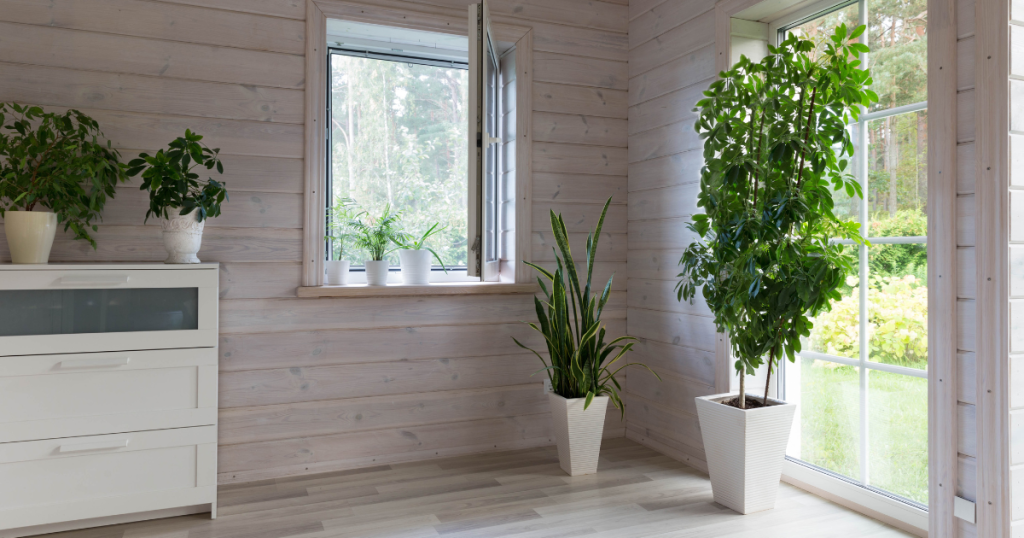The sensitive life is filled with dimension, vibrancy, and awareness. That’s why super effective Highly Sensitive Person coping strategies for every HSP to know are important to know.
People destined from birth to live a life of High Sensitivity (HS) know, with or without labels, that there is something different in their makeup. Unflawed, yet largely misunderstood. Unconventional, yet striving to fit in.
Those entrusted with this delicate, powerful existence live in the exceptional aura of The Highly Sensitive Person (HSP). Coping strategies for them, like the qualities that define them, must therefore step outside what is conventional, convenient, and even demanded by non-HSPs.
Until the 1990’s, the non-scientific community (i.e. almost everyone) didn’t have a name, let alone a research-based model, for what we now know as Sensory Processing Sensitivity, or High Sensitivity.
That doesn’t mean the neurological trait hadn’t existed prior to then. It simply means it wasn’t acknowledged, defined…or named.
Imagine knowing – with all your heart, all your mind – that you are somehow different.
Your awareness is different. As is your thinking is different. Your depth of caring is different. And, your needs are different.
And now imagine spending your life convinced – by family, classmates, colleagues, even yourself – that there is something wrong with you.
Instead of recognizing your existence as a diamond in the rough, you spend your life burying yourself in that rough. There is, after all, safety in numbers. Emotional safety included.
That you as an HSP need a plethora of effective Highly Sensitive Person coping strategies in order to get through the day.
Thankfully, an empathetic heroine of High Sensitivity (HS) brought this remarkable, under-studied trait into the light in the early 1990’s.
Dr. Elaine Aron is a name every HSP should know. Her devoted research on behalf of this small but significant segment (15-20%) of the population has elicited a collective Aha! from millions seeking to understand themselves and many they know.
Fast forward several decades, and High Sensitivity, despite scientific proof and literature to share it, is still finding its voice.
Most of the non-HSP population is unaware of it, doesn’t understand it, or simply shrugs it off as unimportant. Or even regard HS as “just an excuse.”
And, sadly, many HSPs are unfamiliar with their own trait. They live with it, struggle with it, disparage it. They even try to hide it in order to keep up with a world bent on fast, shallow, profitable, and largely self-serving.
(Not sure if you are a Highly Sensitive Person? Answer this preliminary questionnaire to find out.)
HSPs are accustomed to hearing, “You’re too sensitive. You overthink. Lighten up. Toughen up.” (As if there’s no need for specific and effective Highly Sensitive Person coping strategies.)
HSPs are also accustomed to being on the receiving end of people claiming to have a Highly Sensitive Person treatment to fix them.
But please read – and re-read – this carefully:
High Sensitivity is not something to be fixed! It’s a trait to be understood, embraced, and managed for the HSP’s well-being and continued ability to enrich and enlighten the world.
With that in mind, let’s talk about taking care of the HSP…HSP-style.
Here are 10 super-effective Highly Sensitive Person Coping Strategies that every HSP needs to know:
1. Take – and schedule – time to recharge. (Aka one of the most effective Highly Sensitive Person coping strategies!)

Depth of processing is one of the four primary characteristics of High Sensitivity.
As an HSP, you’re like the thinking “deep diver” in a world of snorkelers. You go layers and layers deep, crossing thresholds of contemplation when microscopic views open up whole new worlds.
Combined with the other energy-draining characteristics of HS, depth of processing can be exhausting.
The need to retreat and recharge isn’t optional. It’s essential.
In the movie Sensitive, Alanis Morisette talks with Dr. Elaine Aron about her own life with HS. After understanding “why she is the way she is,” she began to honor herself by scheduling recharge days between her performances.
HSPs literally pour themselves into life. But even they can’t give from an empty well.
2. Declutter, physically and mentally.

High Sensitivity is marked by extreme vulnerability to over-arousability (overstimulation/overwhelm).
Because you are already prone to noticing everything in your surroundings, the last thing you need is unnecessary clutter.
Clutter not only looks messy, it feels messy. And clutter actually has physiological effects on the brain, reducing working memory and increasing anxiety.
You will notice that most Highly Sensitive Person coping strategies are focused on clearing, opening, streamlining, breathing, resting, and healing.
The last thing you need is stuff you don’t need!
3. Make your home your sanctuary.

As an HSP, you can walk into any home and “read” the souls of the lives that dwell within. You know instantly if the home and its inhabitants are loved, loving, creative, confident, and happy.
And your intuition will have nothing to do with wealth.
The idea of home as sanctuary surpasses the rules of architecture and interior design.
It’s infused between the lines, in unexpected delights, in elements that tell life-defining stories.
It exudes magic, even in simplicity, because every element is carefully chosen and placed for its benevolent contribution to your existence.
Even what you choose to watch on TV matters in the creation of your sanctuary.
HSPs notoriously have a revulsion to cruelty, injustice, and horror.
You may not have many friends wanting to join you for another viewing of Sleepless in Seattle. But
your self-care calls for you to minimize your exposure to negative news and violence.
Your home is where you go to retreat, restore, imagine, create, and heal.
It’s yours. So make it you.
4. Bring life into your home.

Welcome a bit of nature into your home.
Plants purify the air and add living, changing beauty to their environment.
Add a fountain for the sensory experience of running water.
An aquarium can be calming and meditative, in addition to being beautiful.
Even candles can be life-giving, especially if they are made from natural materials like beeswax. The dancing flame can be a relaxing focal point for an overstimulated mind.
And having a pet can provide unconditional love and companionship in the same way that emotional support animals aid those with anxiety and depression.
5. Remove distractions from your view in your home and avoid high-distraction environments.

As an HSP, you’re naturally aware of everything, whether you want to be or not.
So much of this awareness is unconscious, and yet, you’re “aware of the awareness.”
Minimal-izing in your home doesn’t mean boring or bland. It’s instead a process of removing what doesn’t inspire you, serve you, or cooperate with a clear visual and mental path to calmness.
If you find yourself constantly, annoyingly aware of something in your peripheral vision, especially something that registers as “imperfect,” remove it.
Likewise, when you’re choosing where to spend time away from home, be conscious of environments that increase or decrease your anxiety.
Restaurants with a lot of background noise and frequent turnover can ruin your whole reason for going out to dinner.
And mega-stores can just be too much – from the parking lot to the endless aisles of “stuff” to the unintelligible announcements on the intercom.
6. Spend as much time in nature as possible.

Mother Nature, in her ever-nurturing way, is abundant in her benefits to those who spend time with her.
The reasons for nature’s benefits aren’t just poetic. They’re scientific.
And the benefits tie in with almost all the Highly Sensitive Person coping strategies listed here.
Nature, for example, doesn’t clutter.
Actually, quite the opposite. She is her own sanctuary.
Nature provides her own music.
She’s the perfect expression of divine creativity.
She dances through the leaves and in the movements of her wildlife.
And, Nature even ordains the perfect schedule of sleep for all in her care.
7. Listen to music.

It’s no secret that music has the secret code to our emotions, memories, and even our physical health. It can relax, invigorate, inspire, even heal.
If you need help falling asleep, staying asleep, and having better quality sleep, check out this list of the best sleep music apps for 2022.
8. Create, create, create!

Everyone has innate creativity – even those who swear they don’t have a creative bone in their bodies.
There’s a reason we all love children’s art. It’s colorful, uninhibited, unedited, and powerfully expressive.
Get lost in a hobby you love.
Color with crayons using your non-dominant hand.
Make a mosaic stepping stone and put it in your garden.
Sew. Paint. Draw. Write a song.
Just let your spirit find expression in a way that brings you joy and makes time lose its measure.
For more ideas on developing and manifesting creativity, check out Julia Cameron’s The Artist’s Way.
9. Say no…with love and without apology.

HSPs instinctively try to avoid conflict, even if that means biting off more than they can chew.
They want to avoid the discomfort and lingering anguish and guilt of conflict and disappointment.
But they end up overwhelmed and miserable when they take on more than what they can comfortably handle.
Perhaps your “no” is in response to an invitation to a large party or a loud concert in a huge arena.
Or maybe it’s in response to an expectation that you join four generations of your family for Thanksgiving.
It could be that your “no” is even about your career. Working in a casino or on the floor of the stock market may earn you a paycheck, but at the price of your spirit.
And jobs that require you to battle rush-hour traffic every day in order to conform to conventional work hours may do more harm than good.
Saying no when you mean no isn’t about being disagreeable or unaccommodating. It’s about having clear boundaries.
And the same boundaries (aka coping strategies) that enable you to say no when necessary will also leave you able to say yes when you’re ready.
10. Make sleep a savored ritual.

Sleep, as essential as it is, is often difficult to come by for the HSP.
Active minds don’t like to shut down. They always have “miles to go before they sleep.”
And it’s second nature for the HSP to always have “more thinking,” “more worrying,” “more processing” to do, even while in bed.
Sleep is one of the most important coping strategies for the HSP. It needs to be scheduled as one of your non-negotiables.
By building a loving, nurturing sleep ritual, sleep will lose its stigma as that “waste of time” luxury you’ll indulge “when you get around to it.”
Set a regular time (with a little leeway) to go to bed, and schedule backwards from there.
Stop eating well before bedtime. Drink a calming tea like chamomile. Diffuse essential oils to help you relax. Take a hot bath or shower. Drench your skin in moisturizing oils or lotions.
Turn off the TV and turn on your sleep music app.
And retire to a bedroom thoughtfully furnished and decorated to instill calm without noise, light, or distractions.
The lifestyle of the Highly Sensitive Person can be a glorious experience.
But it needs to be recognized for its special gifts and honored for its special needs.
The list of HSP coping strategies is as long as the list of HSP qualities.
In the big picture, managing your detailed life as an HSP comes down to securing for yourself the time, space, clarity, simplicity, and rest that your special trait would otherwise deny you.
It’s the so-called little things that aren’t so little – and have a huge impact.
- Have a pet. Or two. Or three….
- Drink a lot of water.
- Eat healthful, colorful, simple foods.
- Find forms of exercise that are gentle to your spirit and kind to your body…and that you enjoy.
- Minimize social engagements on your calendar.
- Wear noise-reducing headphones.
- Avoid rush hour.
- Choose a career that works with your HSP qualities.
And most of all, the best coping strategy for a Highly Sensitive Person (or not) is to surround yourself with beauty and love.
Dr Elayne Daniels is a psychologist, coach, and consultant specializing in helping HSPs thrive, eating disorder recovery, and body image. Please contact her here to reach out.






